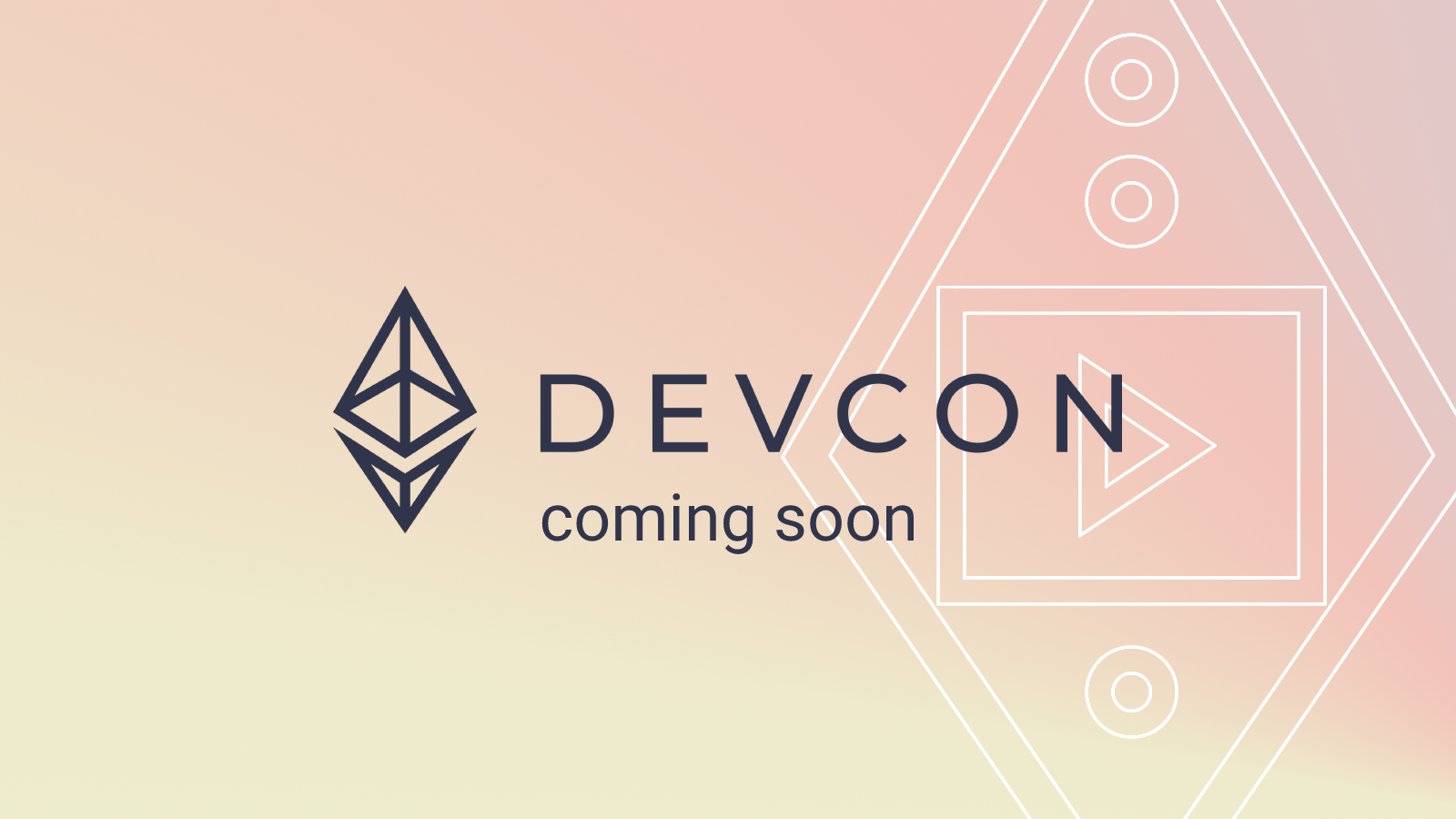devcon 7 / a deep dive into zk proofs of pods
- YouTube
- Details
A Deep Dive into ZK Proofs of PODs
Duration: 01:12:50
Speaker: Ahmad, Andrew Twyman
Type: Workshop
Expertise: Intermediate
Event: Devcon
Date: Nov 2024
Provable Object Data (POD) is a format any app to easily sign data and make ZK proofs without manual circuit writing or trusted setup. Proofs are described in a simple configuration language, then compiled to a family of General Purpose Circuits (GPCs). POD tech is used in Zupass and available as open-source libraries. We’ll dive into the cryptography behind PODs, and what makes them suited to ZK proofs. We’ll also cover the modular design which makes GPC circuits highly configurable.
- Related

Devcon
Workshop
1:24:46
Farcaster frames: building embeddable Ethereum apps
Frames are an open standard for creating embeddable, interactive apps in social media feeds and on the web. They help solve one of the hardest problems for Ethereum dapp developers: distribution. Although frames originated on Farcaster, it's now possible to build cross-platform frames that work on Farcaster, Lens, XMTP, and the open web. In this hands on workshop we'll introduce the core concepts behind frames and build a simple frame app that interacts with a smart contract.
horsefacts

Devcon
Talk
17:35
Keynote: Nomic Foundation’s vision for Ethereum’s tooling ecosystem
Nomic Foundation is the nonprofit behind Hardhat. Nomic’s co-founder and CTO will walk you through Nomic’s long-term vision for a community-driven developer tooling ecosystem for Ethereum.
Patricio Palladino

Devcon
Talk
25:05
Bringing your own cryptographic identity to smart accounts
OpenZeppelin Contracts is the backbone behind some of the most important components behind Account Abstraction. In our efforts to improve the account development experience and amplify the design space, we're working on an Account Abstraction framework to securely develop ERC4337 accounts to comply with ERC-4337 and ERC-7562 validation rules for storage access and other related EIPs.
Ernesto García

Devcon
Talk
28:08
Introducing Provable Object Data
Built on learnings from experimental projects like Zupass, Provable Object Data (POD) is a new format with open-source libraries for any app to issue verifiable data, and make ZK proofs of claims about that data. PODs allow arbitrary key/value data to be signed and distributed. Flexible proofs about PODs can be created using a highly-configurable family of General Purpose Circuits (GPCs), without app-specific circuits or trusted setup. This talk will focus on POD and GPC motivation and design.
Andrew Twyman

Devcon
Lightning Talk
05:55
Programmable Cryptography and Smart Contract
Overview In some use cases, developers may want to execute smart contracts based on the results of FHE or MPC execution. This session will introduce several design patterns for such use cases and show how Programmable Cryptography can be applied to dApps. In detail The results of FHE executions are encrypted and need to be designed to be processed by smart contracts. In addition, the MPC+ZK-based method can solve the private state problem relatively easily using the conventional SNARK verifier.
Shouki Tsuda

Devcon
Talk
The Next 700 EVM Languages
What is the role of programming languages in helping smart contracts become reliable and scalable technology? Are our current languages for the EVM up to the task? Has Ethereum lost the lead in this regard? This talk explores these questions and proposes a roadmap for the development of the next generation of smart contract languages for the EVM.
Francisco Giordano

Devcon
Lightning Talk
08:29
Indexing Entire 2.4 Billion Transactions on Ethereum in 10 Hours
This talk covers learnings from building a general-purpose indexer which index every single transaction since genesis. There is also technical decisions when we have to deal with 7 billions records of data and how to process all of those data in less than half a day. Additionally, we will discuss the difference between batch data processing and real-time data processing, sharing best practices and strategies for both approaches.
Panjamapong "PanJ" Sermsawatsri

Devcon
Talk
19:27
MUD - How we built an EVM application framework from the ground up
We wanted to accomplish one simple task: put a game—with all its data and logic—on a blockchain. What followed were countless technical challenges, years of efforts, and learnings that are applicable to anyone building complex onchain apps. How should data be structured? How can complex world state stay up-to-date on the client? How do we allow multiple teams to build on one single world, without it all breaking apart? Join us as we share the pitfalls and learnings.
Alvarius

Devcon
Talk
15:24
Augur
Dr. Jack Peterson presents on Augur (http://www.augur.net/), an open-source, decentralized prediction market built on Ethereum.
Jack Peterson

Devcon
Talk
17:20
Digital Identity
Christian Lundkvist of ConsenSys (https://consensys.net/) presents on digital identity.
Christian Lundkvist

